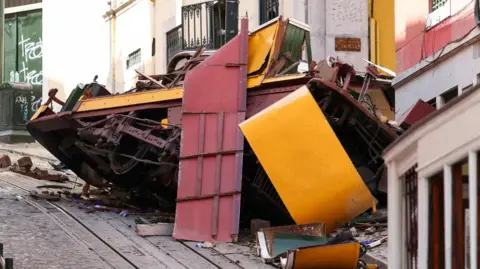Dozens of provincial officials and hospital staff in Gansu have been implicated in a cover-up surrounding a lead poisoning incident that harmed over 200 children at Peixin Kindergarten, sparking public outrage. An official investigation has revealed that some officials tampered with blood tests for students who were poisoned at the kindergarten, which reportedly used inedible paint to improve the aesthetic appeal of meals served to entice enrolment.
The report indicates that city officials received bribes from investors associated with Peixin while neglecting essential food safety inspections across several preschools. Toxic food samples were later discovered to have lead levels that exceeded national safety limits by up to 2,000 times. Initially, eight individuals were detained, including the kindergarten's principal, cooks, and an investor; however, six of them have since been arrested.
On July 8, it was disclosed that 235 children from the privately-owned kindergarten were being treated for lead poisoning after consuming contaminated food items. As of the latest update, 234 of those children have been discharged from hospital care. The Gansu Provincial Centre for Disease Control and Prevention initiated blood tests for 267 students and staff after reports of symptoms emerged. However, officials failed to properly conduct these tests, resulting in misleading results.
The report also criticized staff at the local hospital, citing "serious dereliction of duty" and disarray in the management of the case. The scandal has ignited significant attention on the Chinese internet, where there are calls for accountability among those responsible and praise for what is perceived as transparent reporting of the investigation.
In a response to the crisis, the central government swiftly established a panel to identify procedural gaps. On the national stage, new guidelines for school meal provisions have been introduced, requiring comprehensive testing of food and mandating centralized procurement of key ingredients. In Tianshui, families affected by lead poisoning will receive free treatment at designated hospitals, alongside legal support services. Additionally, Peixin Kindergarten will temporarily come under the oversight of a state-run institution.





















